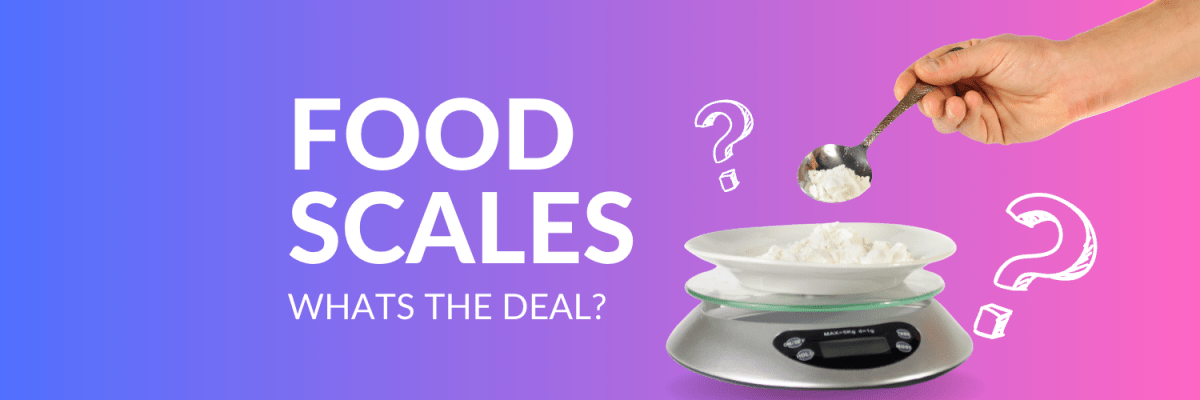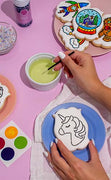
Food scales: Weighing the Options
Have you ever experienced different results when making a recipe more than once? Maybe it tasted different, or just didn’t look the same? If you have eliminated every other possible reason for the difference (expired ingredients, oven issues, etc), it would be worth looking at how you are measuring your ingredients.

Most of us know that there are different measuring options for different types of ingredients (wet versus dry, for example), and that there is a difference between a packed measuring cup and one that has been filled with a spoon. But we don’t always think about the fact that when a recipe calls for a certain amount of a particular ingredient, we will likely end up with a different amount depending on whether we use a measuring cup or a food scale. Able to measure both wet and dry ingredients, food scales can be found in almost any kitchen goods or grocery store—and they can make the difference between a recipe that is good some of the time and one that is spot-on every time.

If you use measuring cups for your cookie recipe and have never had a bad batch—that’s awesome, go you! This is in no way telling you that you’re doing it “wrong.” Certain recipes are just inherently much better served by weighing ingredients versus using measuring cups and spoons (macarons, for example, are notoriously finicky, giving them the reputation as the most difficult cookie to make successfully). And again, if you find yourself struggling to get that consistently perfect bake, it is worth trying to figure out why. When a recipe goes wrong, it can be hard to pinpoint what happened, and where the problem is. But baking is science—without all the cool Bunsen burners and microscopes. If you measure your ingredients in a more scientific way (hey there, food scale, looking at you), it will ensure that your recipe—and your results!— will be more consistent. Food for thought!
Recommended for You:
Piping Bag Tip Tube Covers - Set of 4
AtecoDon't let your icing bags leak or dry out! Use these covers on bags with Ateco couplers and standard tips on them. Reuse them again and again. Se...
View full detailsBlack Fine Tip Food Marker
The Cookie CountessA black edible-ink pen is essential for your decorating kit. Use these high quality markers for: Marking up baked cookies for planning designs Wr...
View full detailsStainless Steel Measuring Cups 4 Piece Set
The Cookie CountessIncredibly high quality, with no plastic parts. Whether baking or cooking you'll reach for these essentials again and again! THESE ARE THE LAST SET...
View full detailsCookie Order Form 5 x 7, 50 sheets
The Cookie CountessThese cute sheets will help you plan your cookie orders. The back has an area for sketching and pricing planning. Size: 5" x 7" 50 Sheet Pad Doub...
View full details-

Introducing the Cookie Countess Cookie Capsule Collection!
Read nowTired of using boring clear bags as packaging for your beautiful decorated cookies? Or maybe you’ve been looking for a more protective way to package them that is just as pretty as the cookies themselves? Well, look no further than...
-

Stamped Jack-o-Lantern Cookies: an Easy Halloween Treat
Read nowSo you want to make Halloween cookies, but you don't really feel like making or using royal icing? Well, do we have the design for you! Look no further than the Cookie Countess Jack-O-Lantern cutter and stamps set to help...
-

Make and Decorate Easy Mini Jack-o-Lantern Cookies
Read nowHalloween is one of the biggest cookie holidays of the year, and I personally think that can be chalked up to the sheer number of fun/spooky/adorable/creepy designs this holiday lends itself to! Let's look at one of the most basic--Jack-o-Lanterns!...














Comments
Leave a comment